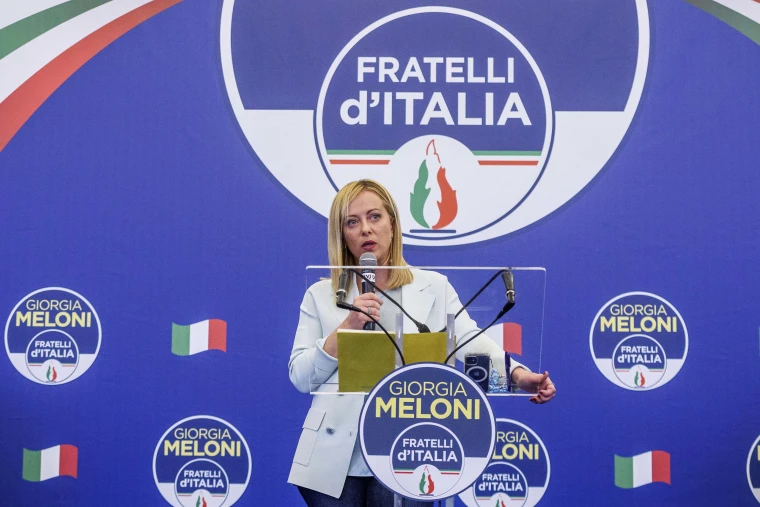Giorgia Meloni elected first female Prime Minister of Italy
Giorgia Meloni began serving as Italy’s first female Prime Minister in October (Courtesy of Antonio Masiello/Getty Images)
Conservative political leader Giorgia Meloni recently became the first female Prime Minister of Italy after being sworn in on October 22, 2022. While this marks an important moment in Italian political history, Meloni seeks to usher in a new era of policies which many critics have deemed as “neo-fascist”— an adjective that carries considerable weight in the nation’s history. Her party’s goals could inflict extreme damage on Italy’s most vulnerable demographics if instituted.
While she is a relative newcomer to the global political scene, Meloni has been involved in Italian politics since her youth. However, her younger years were marked by political extremism that raises many red flags. At age 15, Meloni joined the Youth Front of the Italian Social Movement, an organization that controversially supported the leaders and ideologies of Italy’s fascist history. Later on, 19-year-old Meloni took part in a TV interview in which she praised Benito Mussolini as one of Italy’s greatest political leaders. In 2022, she also labeled Giorgio Almirante, a fascist figure who produced racist propaganda during World War II, a “great politician.” While some of her questionable decisions as a younger woman could be chalked up to immaturity, they still reflect on her character and future as a leader.
After completing her education, Meloni continued to engage in Italian politics. After holding small, local positions in the conservative Brothers of Italy party, Meloni won a seat in Italy’s Parliament in 2006. She continued to gradually climb the ladder of politics, gaining a leading position in her party. While the Brothers of Italy party takes far-right positions on many topics, its high ranking members have insisted that its members are opposed to the ideology of fascism. Meloni’s victory marks the first time the party has held power in Italy, insinuating that Italians are seeking a change to the typical political scene. Meloni has used this fact to her advantage, promoting the idea that she has been uninvolved in Italy’s top seats of government over the past few years to insist that she represents change.
Meloni, identifying as a Christian conservative, has pledged to follow the motto of “God, family, and fatherland” as leader of her country. To achieve these ideals, Meloni has been a staunch supporter of ending immigration to Italy from African nations. Meloni has gone as far as suggesting the implementation of a naval blockade to stop those attempting to enter Italy by boat. While Italy has faced rising unemployment issues over the past few years, her extreme rhetoric has many immigrants currently living in Italy worried. Many of Meloni’s critics also argue that simply ending immigration will not solve Italy’s job crisis.
In addition to her anti-immigration stances, Meloni has taken attitudes against the civil rights of certain Italian groups. Meloni personally opposes abortion and same-sex unions. While Meloni says that she does not aim to get rid of either of these rights completely, she has taken a strong stance against LGBTQ+ parenting. Meloni wishes to end the opportunity for LGBTQ+ couples to adopt children or look toward surrogate options.
Though her party denies connection to Italy’s fascist past, Meloni’s discriminatory viewpoints present an alarming future for marginalized groups living in Italy. Currently, the Brothers of Italy only control a small fraction of parliamentary seats, making it unlikely that Meloni will be able to go forward with all of her proposed policies. For now, the Italian people must wait to see what Meloni plans for the future of the Mediterranean nation.


